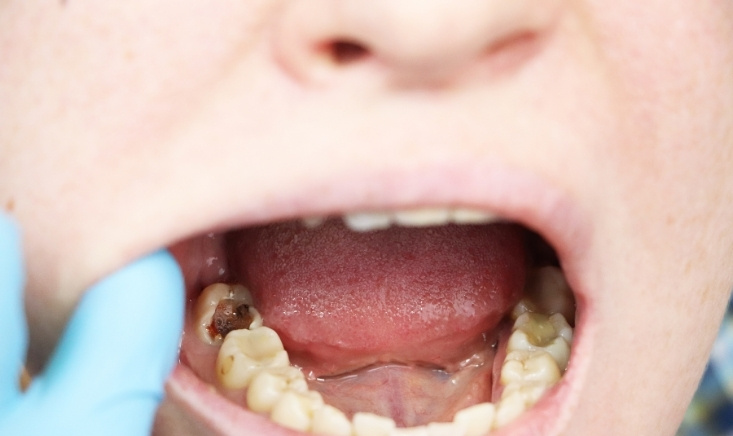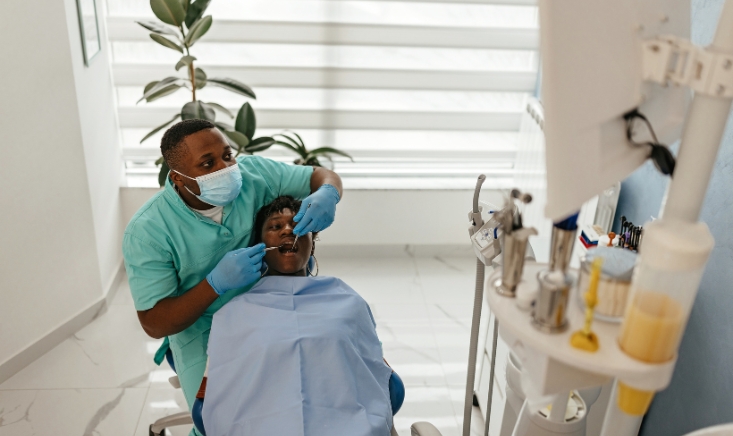2200 AW Grimes Blvd, Suite 100 Round Rock, TX 78665
Dental Care During Pregnancy: A Guide for Expecting Mothers

Congratulations! You’re expecting a little bundle of joy. As your body undergoes amazing transformations to nurture new life, it’s natural to have questions about your own well-being, including your dental health. Here’s a comprehensive guide to navigating dental care during pregnancy, addressing common concerns and ensuring a healthy smile for both you and your baby.
Why Dental Care Matters During Pregnancy
Oral health is an integral part of overall health, and this holds true throughout pregnancy. Hormonal fluctuations during pregnancy can sometimes increase your susceptibility to gingivitis, a mild form of gum inflammation. Left untreated, gingivitis can progress to periodontitis, a more severe gum disease linked to pregnancy complications like preterm birth and low birth weight.
Regular dental checkups allow your dentist to monitor your oral health, identify and address any potential issues early on, and offer guidance on maintaining a healthy smile throughout your pregnancy.
Brushing and Flossing: Your Pregnancy Powerhouse Duo
Brushing your teeth twice a day with fluoride toothpaste and flossing daily remain the cornerstones of good oral hygiene during pregnancy. Here are some additional tips to remember:
- Morning sickness: If brushing triggers nausea, try rinsing your mouth with water or a sugar-free mouthwash after vomiting. Don’t skip brushing altogether – you can even brush more frequently if you can tolerate it.
- Gingival tenderness: A softer toothbrush can help prevent irritation. Consider using a toothpaste specifically formulated for sensitive gums.
- Flossing: Flossing daily removes plaque and food particles from between your teeth, preventing gum inflammation. If you find trouble with traditional flossing, consider using a water flosser.
Dietary Adjustments for a Healthy Smile
What you eat nourishes not only you but also your developing baby. Here’s how your diet can impact your oral health during pregnancy:
- Limit sugary foods and drinks: Sugar feeds the bacteria in your mouth that contribute to plaque buildup and cavities. Make healthy choices such as fruits, vegetables, and nuts.
- Calcium-rich foods: Calcium is essential for strong teeth and bones for both you and your baby. Include dairy products, leafy greens, and foods fortified with calcium in your diet.
- Hydration is key: Staying hydrated helps with saliva production, which washes away food particles and helps prevent cavities.
Dental Treatments During Pregnancy
While some dental procedures are best postponed until after delivery, most routine treatments are safe during pregnancy. Here’s a breakdown:
- Safe procedures: Cleanings, fillings, and certain types of extractions can be performed safely during pregnancy. The second trimester is often considered the ideal time for these procedures.
- Talk to your dentist: Always inform your dentist about your pregnancy and any concerns you may have before undergoing any dental treatment. They can tailor the treatment plan to your specific needs and ensure the safety of both you and your baby.
- X-rays: Dental X-rays are typically avoided during the first trimester as a precautionary measure. However, if absolutely necessary, your dentist will take steps to minimize radiation exposure.
Morning Sickness and Dental Care
Morning sickness can be a real challenge, and it might make you neglect your oral hygiene routine. Here are some tips to manage your dental health during this time:
- Brush more frequently: If you can tolerate it, brush your teeth after vomiting to remove any lingering acids.
- Ginger power: Ginger is known to help alleviate nausea. Consider sucking on ginger candies or incorporating ginger into your diet.
- Hydrate, hydrate, hydrate: Drinking plenty of water helps prevent dehydration and washes away any lingering vomit taste.
Common Dental Concerns During Pregnancy
- Bleeding gums: Gingivitis is a common occurrence during pregnancy due to hormonal changes. Brushing and flossing regularly is crucial, and your dentist can recommend a treatment plan to manage gum inflammation.
- Tooth sensitivity: Hormonal fluctuations can make your teeth more sensitive. Using toothpaste for sensitive teeth and avoiding extreme temperatures in your food and drinks can help.
- Dry mouth: This can be a side effect of pregnancy or certain medications. Drinking plenty of water and using a sugar-free mouthwash can help alleviate dryness.
- Pregnancy tumors: These are noncancerous growths on the gums that usually disappear after delivery. However, inform your dentist if you notice any such growth.
Taking care of your oral health during pregnancy is an investment in your overall well-being and the well-being of your baby. By following these tips and regular dental visits to your Round Rock dentist, you can ensure a healthy smile throughout your pregnancy journey.




